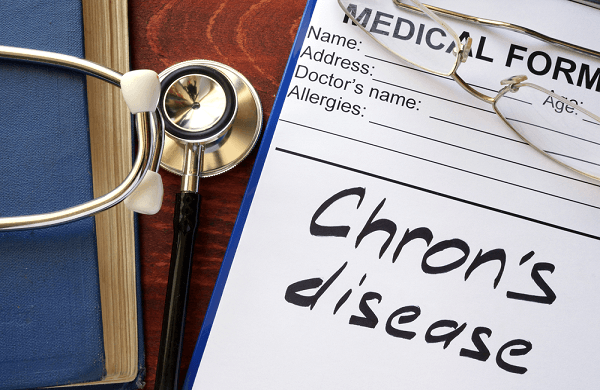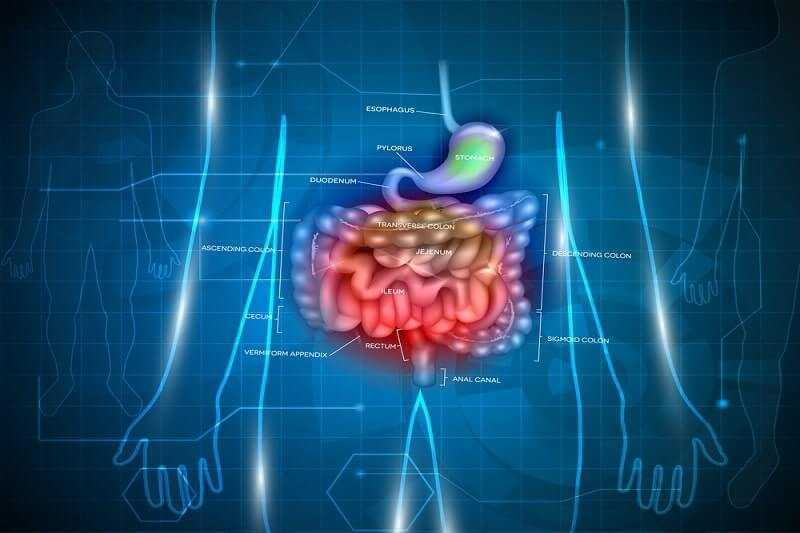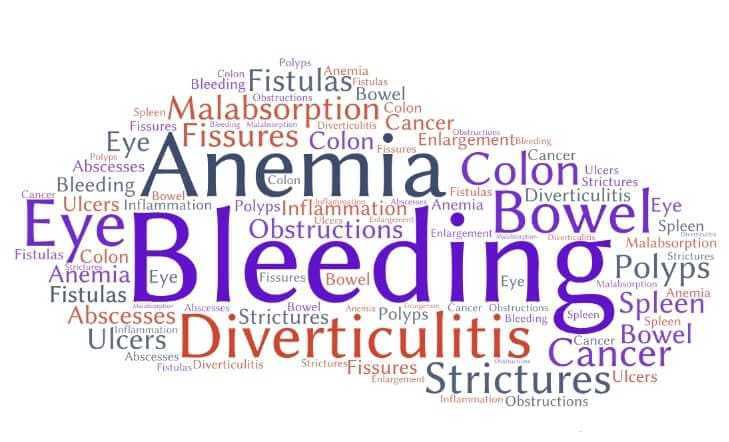Understanding Crohn’s Disease
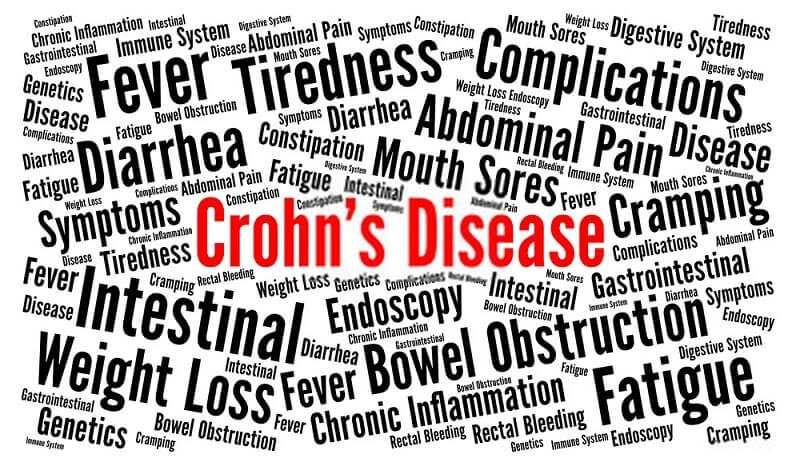
Relax: it’s not something you ate. People who are newly diagnosed with Crohn’s disease have lots of questions – including whether they caused it with their diet. Doctors still don’t know what causes Crohn’s, but they have ruled that possibility out.
Regardless of what causes Crohn’s, many factors can affect your day-to-day symptoms – including diet and stress. There’s a lot more you should know to help you live as comfortably with Crohn’s as possible. Here are answers to some of the most common questions about this condition.
What is Crohn’s disease?
Crohn’s is a form of inflammatory bowel disease (IBD) that produces chronic digestive troubles. It can cause swelling, irritation and scarring anywhere in the intestinal tract, but most often affects the end of the small intestine. Crohn’s disease is related to ulcerative colitis, another form of IBD. Symptoms are similar, but the two diseases generally affect different parts of the gastrointestinal tract.
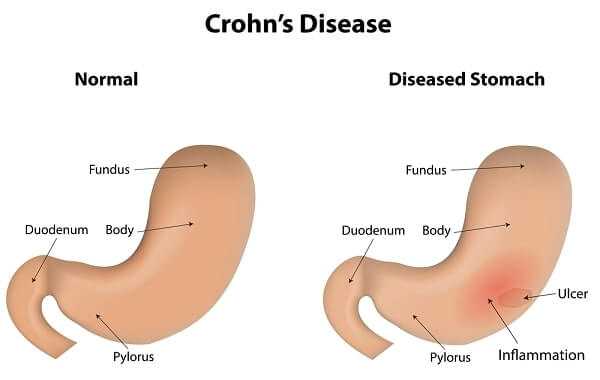
What are the symptoms?
Crohn’s symptoms vary from person to person and from time to time. They may be mild or severe. The most common symptoms include:
• Pain in the abdomen
• Persistent diarrhea
• Rectal bleeding
• Loss of appetite or weight loss
• Fever
• An urgent need to move the bowels
• A feeling that the bowels have not emptied completely
• Constipation
• Fatigue
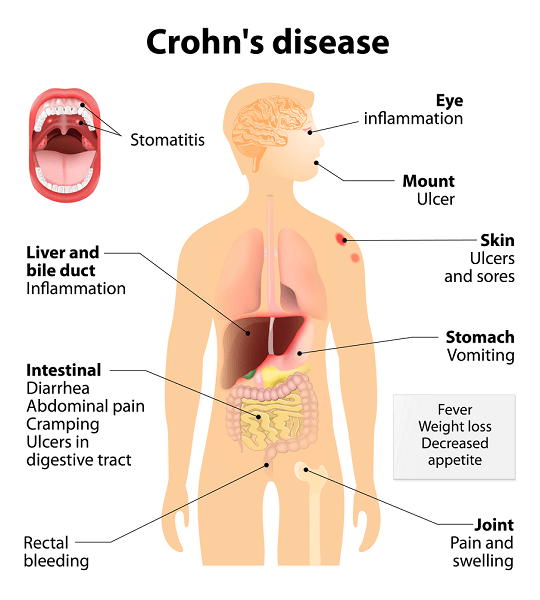
These are not the only symptoms associated with Crohn’s. Regardless of what symptoms you notice, only testing by your doctor can determine whether you have Crohn’s disease.
What causes Crohn’s disease?
While the exact cause is unknown, we do know that Crohn’s is an autoimmune disorder, possibly caused when the body’s immune system mistakenly attacks harmless bacteria and food. Genes, family history, unknown environmental factors, and smoking may also play a part.
Who gets Crohn’s disease?
Both men and women get Crohn’s, and it may run in families. It most often appears between ages 15 – 35, but may strike at any age. Estimates say 500,000 to 700,000 people in the United States have been diagnosed with Crohn’s; many more undiagnosed people may have it too.

How is Crohn’s diagnosed?
No single test can determine whether you have Crohn’s disease. Doctors generally rely on a combination of examinations, tests, and medical history.
It’s likely that your doctor will begin with a physical exam. After that, the most common test is a colonoscopy. Your doctor may also order blood tests, a stool analysis, X-rays, a computerized tomography (CT) scan, a biopsy of bowel tissue, or other exams.
How is Crohn’s disease treated?
Unlike many health conditions, there is no single best treatment for Crohn’s. That’s because each patient’s circumstances, symptoms and response to treatments may vary. There is no cure for Crohn’s, so treatments seek to reduce or eliminate symptoms. Options include:
• Medicines including anti-inflammatories, antibiotics, prescription pain pills, fiber supplements, antidiarrheals, immune-system suppressors, and inflammation blockers.
• Surgery to remove a damaged or diseased part of the intestine or to treat problems such as bleeding, infections, fistulas or narrowing of the intestine. Eventually, most Crohn’s patients will require some kind of surgery.
• Diet and Nutrition to avoid foods that make your symptoms worse, and to give your body enough nourishment even though its ability to absorb nutrients from the food you eat may be impaired. Some people need to take nutritional supplements or extra vitamins. Otherwise, there is no special diet for Crohn’s; a well-balanced diet of healthy foods is best, as it is for everyone. Identifying your problem foods can be especially difficult because they may change. Ask your doctor for diet guidance or get a referral to a dietitian who works with Crohn’s patients.
Related Article
Crohn’s Disease Treatment Options
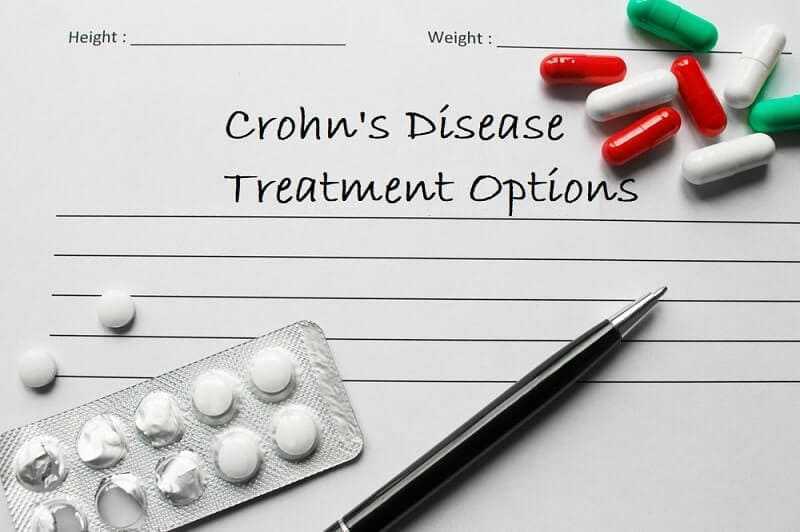
Your future with Crohn’s
Crohn’s disease is a chronic disease; that means it may last for the rest of your life. But don’t be discouraged if what you’ve learned about it so far seems overwhelming. There’s a lot you can do to reduce discomfort, manage symptoms, and live a life centered on enjoying the activities you love. The more you continue to learn about Crohn’s, the better equipped you will be to cope with it successfully – as so many other Crohn’s patients have learned to do.


